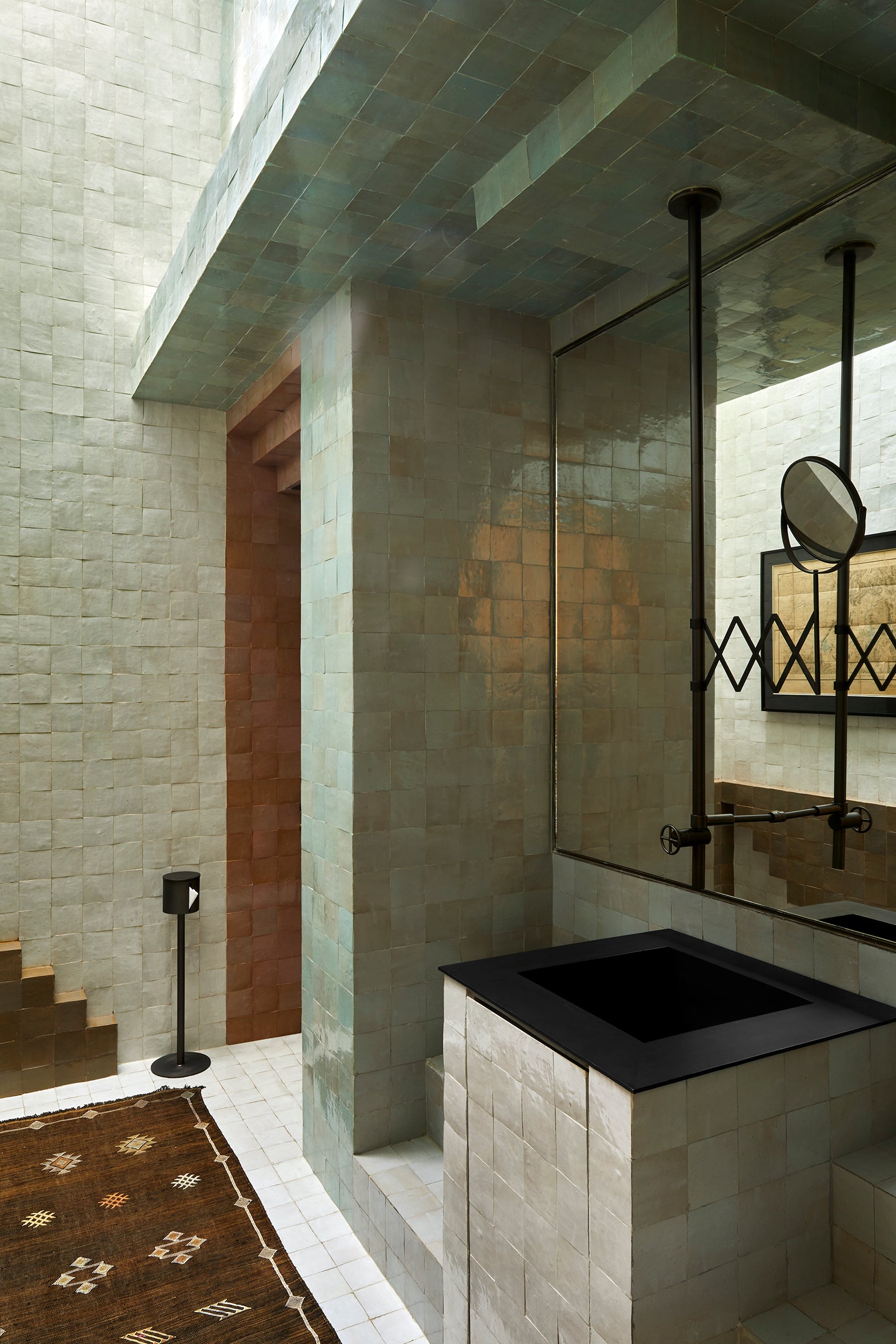By Ashiesh Shah
In this week’s blog, we tour a residential gem located in Shantiniketan in South Delhi, India. Shantiniketan house encapsulates Shah’s Wabi- Sabi aesthetic seamlessly paired with a calculated geometrical profile. Blurring the boundaries between the interior and the exterior, the space serves as an extension to the architecture it inhabits, interwoven with these built elements through careful consideration and vanishing thresholds, an ideal synthesis between the inside and out.
Tell us a little bit about the project?
The client's brief worked in absolute synchrony with the Atelier’s philosophy celebrating artisanship through the incorporation of skilfully crafted design objects exuding a sense of tactility and character to the spatial environment. Whether the Naga totems floating at the entrance, the Channapatna light suspended across the gazebo or the Dokra bar custom made in Chattisgarh, the interiors spew forth the essence of tribalism and handmade processes celebrated with a contemporary flair. The space also features antique collectibles sourced from Kochi and contemporary art pieces by the likes of Atul Dodiya, Prabhakar Pachpute and Ravinder Reddy, having a true gallery-like appeal. Designed for a family of five, the abundant natural lighting within helps accentuate the characteristics of the materials, colors and textures employed. Striking a balance between the interior and exterior, the living room masked in dark wood overlooks the outdoor landscape with a pristine white bench creating a rather pleasing vista. A celebration of detailed craftsmanship, fine materiality and geometry, the Shantiniketan House is truly an embodiment of balance, elegance and a refined aesthetic.

Get the look
Nailing the wabi sabi look is all about using the correct combination of materials. A handmade zellige tile is the perfect way to incorporate an organic feel whilst still maintaining a lux sense of style.
Explore Ashiesh's pick and others
here
Can you talk us through your personal design style?
My work is strongly rooted in the Japanese philosophy of ‘Wabi-Sabi,’ describing beauty in imperfection where asymmetry and asperity play a significant role in the pieces that I create. I appreciate spaces that incorporate natural objects and processes and I try to maintain this principle in my own practice. Nothing is permanent, nothing is finished and nothing is perfect.
What do you love most about Tiles of Ezra?
Meticulously handcrafted, Tiles of Ezra infuses a certain authenticity and uniqueness to the space. A staunch believer of the Japanese philosophy of Wabi Sabi, I truly appreciate your notion of craftsmanship - a result of working closely with artisans and their families over the years. As part of the Atelier, I firmly believe in inculcating craft within spaces, celebrating handmade processes and artisanship empowering the karigar (craftsman.)
Be sure to check out more of Asiesh's genius
here.



















Leave a comment
This site is protected by hCaptcha and the hCaptcha Privacy Policy and Terms of Service apply.